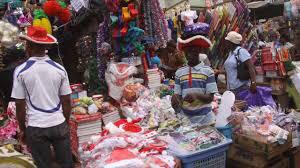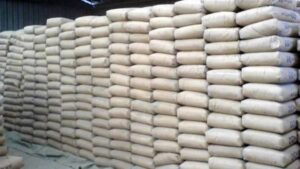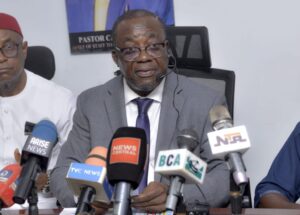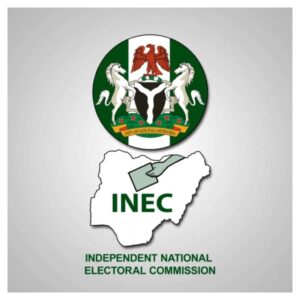UPSIDE IN COST OF LIVING: AVERAGE NIGERIAN FIGHTING FOR SURVIVAL

Recent market visits indicate that food and other household items continue to be expensive.The cost of solid fuel, liquid fuel, cooking gas, air and road passenger transportation, and other fuels has also increased significantly. Furthermore, despite assurances from regulatory bodies that they are exerting every effort to stabilize the economy, the value of the naira keeps declining. People who work for themselves or receive salaries lament that their incomes seldom cover the needs of their families, which include clothing, food, housing, healthcare, and education. As a result, many Nigerians are finding life more and more difficult, particularly those who are vulnerable or have low incomes.
Inflation is the term most frequently used to characterize the current situation. In economics, the term “inflation” refers to a general, progressive rise in prices as well as a decline in the purchasing power of money.

One could be tempted to blame the rising cost of living on the economies’ overall decline in productivity. This is particularly true given that they seem to be falling behind in the development and application of the new technologies underlying the global energy transition once more. Nevertheless, they have all been here before. Growing insecurity might have caused the drift of rural-urban migration to accelerate into a swarm, just as persistent energy poverty has disrupted the expansion of industrial capacity. Finding solutions for these pre-existing comorbidities has proven difficult in the areaThe seasonally adjusted unemployment rate plus annual inflation combined to create NigeriaBusinesses have stopped investing in either maintaining current capacity or building new ones if consumers are not spending because inflation, which stood at 24.08 percent on an annual basis in July, is making it harder for them to sell their goods and services. Anecdotal evidence indicates that most foreign-born companies have to choose between cutting back on current operations and leaving the market.
Nigeria, the largest economy in Africa, is burdened by stagnant income growth, soaring prices, and an increased cost of living for households and businesses alike. The situation is even worse for the majority of Nigerians who are living paycheck to paycheck; they must spend almost all of their income in order to survive each day and have little to no extra money to put away in savings. Even worse, some Nigerians are struggling with unemployment due to inflation. The National Bureau of Statistics reports that in 2021, the unemployment rate rose to a record 33.3 percent. The number might have increased due to the forced closure of certain businesses that were forced out of business by increasing operating costs.
What or who is to blame for the increasing rate of inflation? Many point the finger at the government. A fundamental factor contributing to rising inflation is the government’s overspending relative to its revenue. The depreciation of the Naira, rising production costs, fuel prices, government economic policies, the national debt, decreased productivity, high taxes, increased public spending, illiquidity of the foreign exchange market, high or unfavorable exchange rates, rising unemployment, and so on are some additional potential contributing factors to Nigeria’s inflation problem.
Given all of the issues plaguing our economy, the relevant authorities ought to make an effort to appropriately handle the situation before it gets out of control. The whole economy is impacted when food prices rise along with those of other goods and services over time. It affects every aspect of the economy, including the cost of living and conducting business. Inflation is like a balloon. Depending on its size and strength, a balloon can hold a certain amount of air inside it. However, if the balloon is inflated too much, it will always “burst.” This also holds true for persistent economic inflation, which ultimately results in a financial “bust.” From an economic perspective alone, experts concur that all instances of extreme inflation in history have resulted in the devaluation of the country’s currency. This has consistently happened time and time again.It is helpful to keep in mind, though, that in addition to the disastrous effects of COVID-19 and our poor economic management decisions, the current crisis has also been fueled by inattention to the implications of a raging climate crisis, insecurity, particularly in rural areas, the prevalence of fake news and the ensuing information crisis, which have all combined to form a cocktail of destabilizing factors in the nation. These factors are felt most keenly by the poor and vulnerable segments of our population as they count the additional costs associated with rising petrol prices and the rising value ofReasonable economic planning and execution are difficult because of this portmanteau of unfavorable circumstances. It also stands in the way of any improvement to our social organization. The tunnel-vision approaches that characterized the eight years of the Buhari administration simply will not cut it if we are to overcome these obstacles. It will be necessary for the Tinubu administration to design an economic climate that is conducive to democracy.










